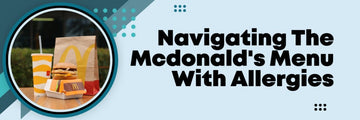Tomatoes are amazing fruits that we use often in salads and cooking food. They are rich in antioxidants, protein, fat, and phytosterols. Phytosterol is a compound that blocks and prevents the body from absorbing cholesterol (which often results in weight gain and conditions like obesity). They are also rich in vitamin E, vitamin C, and carotenoids. Based on this information, tomatoes are a great addition to your diet. Including them in your diet will help boost digestion and could prevent constipation. Besides all of the positive aspects of tomatoes, unfortunately, some people can experience negative side effects after consuming tomatoes.
What is IBS?
Irritable Bowel Syndrome (IBS) is a common disorder known to affect the large intestines. IBS includes a group of intestinal symptoms which typically occur together. Even though symptoms and severity levels vary from one person to the other, IBS is diagnosed by lasting for at least three months affecting the individual at least three days a week.
In some cases, IBS damages the intestines, preventing essential nutrient absorption. Even though IBS affects many people, not most of them experience severe symptoms. Most people can manage the symptoms by managing their diets, stress, and lifestyle. The more severe cases of IBS often improve by taking medication and undergoing counselling.
Symptoms of IBS
- Abdominal cramping
- Abdominal pain {1}
- Bloating and gas
- Constipation
- Diarrhoea
- Changes in frequency of bowel movement
- Changes in the appearance of bowel movement
The link between IBS and tomatoes
Tomatoes have low FODMAP, which means the body can easily tolerate them without causing any IBS symptoms. However, various issues caused by tomatoes could bring about symptoms, as we will discuss below.
Acid reflux caused by tomatoes
Tomatoes are highly acidic, and that’s why they tend to cause acid reflux in some people. For tomatoes to cause acid reflux, it depends on the number of tomatoes you’ve consumed. The more tomatoes you consume, the higher the chances of experiencing acid reflux. The tomatoes cause gastric acid production in the stomach, and the excess acid produced then travels up your oesophagus, causing a lot of uneasiness and heartburn. To avoid this heartburn, you need to reduce the number of tomatoes you consume.
Tomato Allergy
Tomatoes contain a lot of histamines which are notorious for causing significant allergic reaction symptoms even though tomato allergy is highly uncommon {2}. If you’re allergic to tomatoes, you’ll immediately experience symptoms like;
- Sneezing
- Eczema
- Hives
- Skin reactions
- Swelling in the face, mouth, and tongue
- Throat irritation
If you experience any of the uncomfortable symptoms outlined above, you can find out whether you have an allergy to tomatoes by taking a quick and easy
Allergy Test. The only way to prevent these symptoms from occurring again is to cut tomatoes out of your diet.
Nightshades
Tomatoes contain alkaloids, a natural compound produced by the fruit to repel against insects and diseases. When most people consume foods high in alkaloids, it leads to IBS symptoms, and it gets better when they avoid foods entirely like tomatoes or reduce the quantity they consume. So, you can talk to your doctor, and maybe you will end up experimenting by eliminating tomatoes then later adding them back in minimum quantities. You can only do this if your symptoms aren’t severe and under the doctor's guidance.
Tomato intolerance

Our Intolerance Test Box Kit
Some people are intolerant of these yummy fruits. Tomatoes can cause symptoms like diarrhoea because they contain excess acidity and are greasy, making the stomach churn. Tomatoes also can be contaminated with salmonella, which can cause a stomach upset when consumed in excess amounts. You can always take an
Intolerance Test if you’ve ruled out any underlying medical problems that could be causing these symptoms.
Are tomatoes triggering my IBS symptoms?
Tomatoes are very versatile, and even though that’s a good thing, they can be a double-edged sword for IBS. Tomato is a primary ingredient in processed foods, including pizza sauce, ketchup, marinara, and soup. Even though tomatoes are low in FODMAPs and safe for those with IBS (who aren’t intolerant or allergic to tomatoes), they can cause IBS symptoms when in processed foods. That’s because sauces and other processed foods with tomatoes also contain other ingredients like garlic, sugar, and onions high on the FODMAP list, causing those IBS symptoms to flare up whenever you use them.
As we can see from the above analysis, tomatoes can cause IBS symptoms, but not at all times. Tomatoes in their fresh state are good to consume as they have great nutrients but in average amounts. You can do this if they don’t cause any severe symptoms. If you notice eating canned tomatoes or ones in ketchup and other sauces cause IBS symptoms to flare up, then you should stick to consuming only fresh tomatoes in small quantities.
But if the slightest consumption of even fresh tomatoes causes IBS symptoms, then it is better to avoid consuming them because that means you could be allergic to tomatoes. However, you can take an
Allergy and Intolerance Test to be sure you know which of the two you’re suffering from. Once you have a clear picture, you can talk to your doctor, and they will give you a way forward to what foods you could consume in place of tomatoes and which foods you will need to avoid altogether so you won’t have severe symptoms.
If sauces cause your IBS symptoms to flare up, you can look for sauces that are low in FODMAPs. There is no need to completely cut-off sauces if you love them.
Ways to enjoy tomatoes with IBS.
You can try FODMAP stacking; this means checking the threshold of each FODMAP group you can tolerate. You get your doctor to help you test that out. This threshold varies from person to person. Once you know the number of tomatoes you can consume with any IBS symptoms, you can always use that quantity instead of eliminating these juicy fruits from your diet.
Look for hidden FODMAP foods. When consuming processed tomatoes like canned ones or in ketchup and other sauces, checkout for ingredients like onions, garlic, and sugar. Those ingredients are high in FODMAPs, which could cause you symptoms, so you’ll need to avoid sauces, soups, and canned tomatoes with these added ingredients.
The ripeness of tomatoes. Since the only tomatoes tested and proved low in FODMAPs are ripe red tomatoes, you will need to stick to those. Avoid green tomatoes since they could be the ones triggering IBS symptoms.
Pair tomatoes with other non-FODMAP foods. When consuming tomatoes, ensure you check other foods that you’re consuming together. The serving size of these foods helps you be mindful and avoid any IBS symptoms and high FODMAPs foods.
Make your soups and sauces. When you create soups and sauces at home, you can be sure of the ingredients in them and quantities preventing you from getting IBS symptoms from store-bought sauces and soups.
Final thoughts on tomatoes and IBS
Tomatoes are amazing nutrient-rich fruits that you can consume if you suffer from IBS. All you’ll need to do is check other foods you’re pairing tomatoes with or ingredients in your sauces and canned tomatoes. Avoid anything that has ingredients high in FODMAPs. But if you doubt you might be suffering from a tomato allergy or intolerance, it’s best to order an
Allergy and Intolerance Test kit online, get tested, and know the verdict. Once you know, it will be easier to know which foods to avoid. Tomatoes could be among them, or not.
References
- Grundmann, O., & Yoon, S. L. (2010). Irritable bowel syndrome: Epidemiology, diagnosis and treatment: An update for health‐care practitioners. Journal of gastroenterology and hepatology, 25(4), 691-699 (https://onlinelibrary.wiley.com/doi/full/10.1111/j.1440-1746.2009.06120.x)
- Asero R. (2013). Tomato allergy: clinical features and usefulness of current routinely available diagnostic methods. Journal of investigational allergology & clinical immunology, 23(1), 37–42 (https://pubmed.ncbi.nlm.nih.gov/23653972/)
 Our Intolerance Test Box Kit
Our Intolerance Test Box Kit










